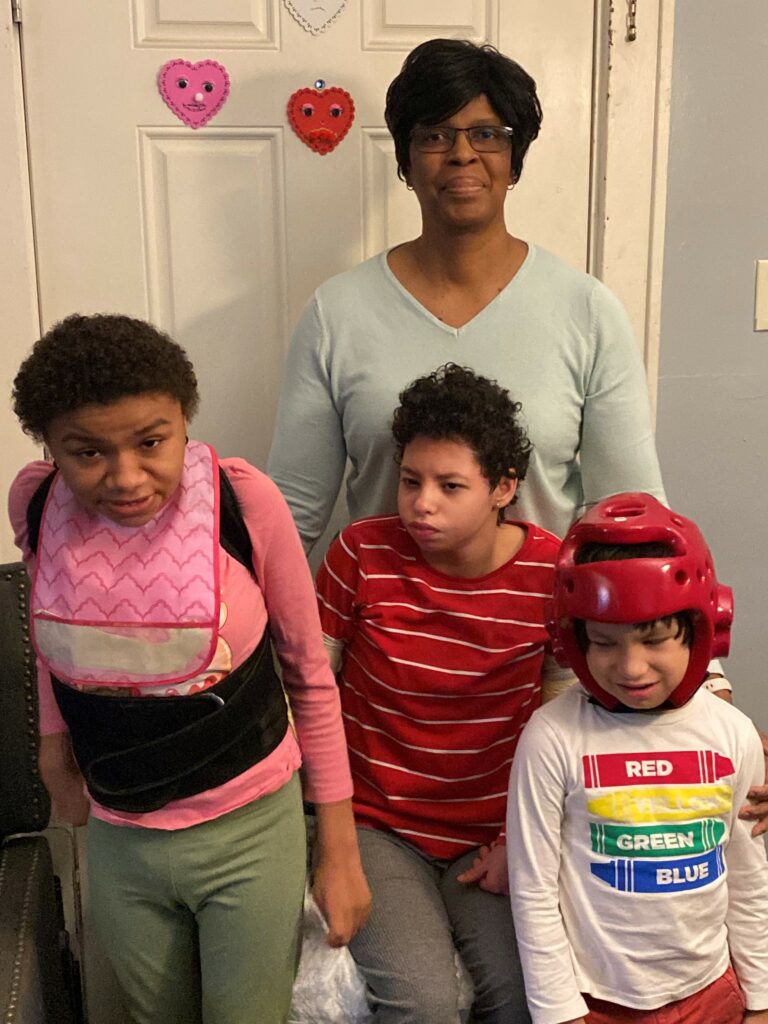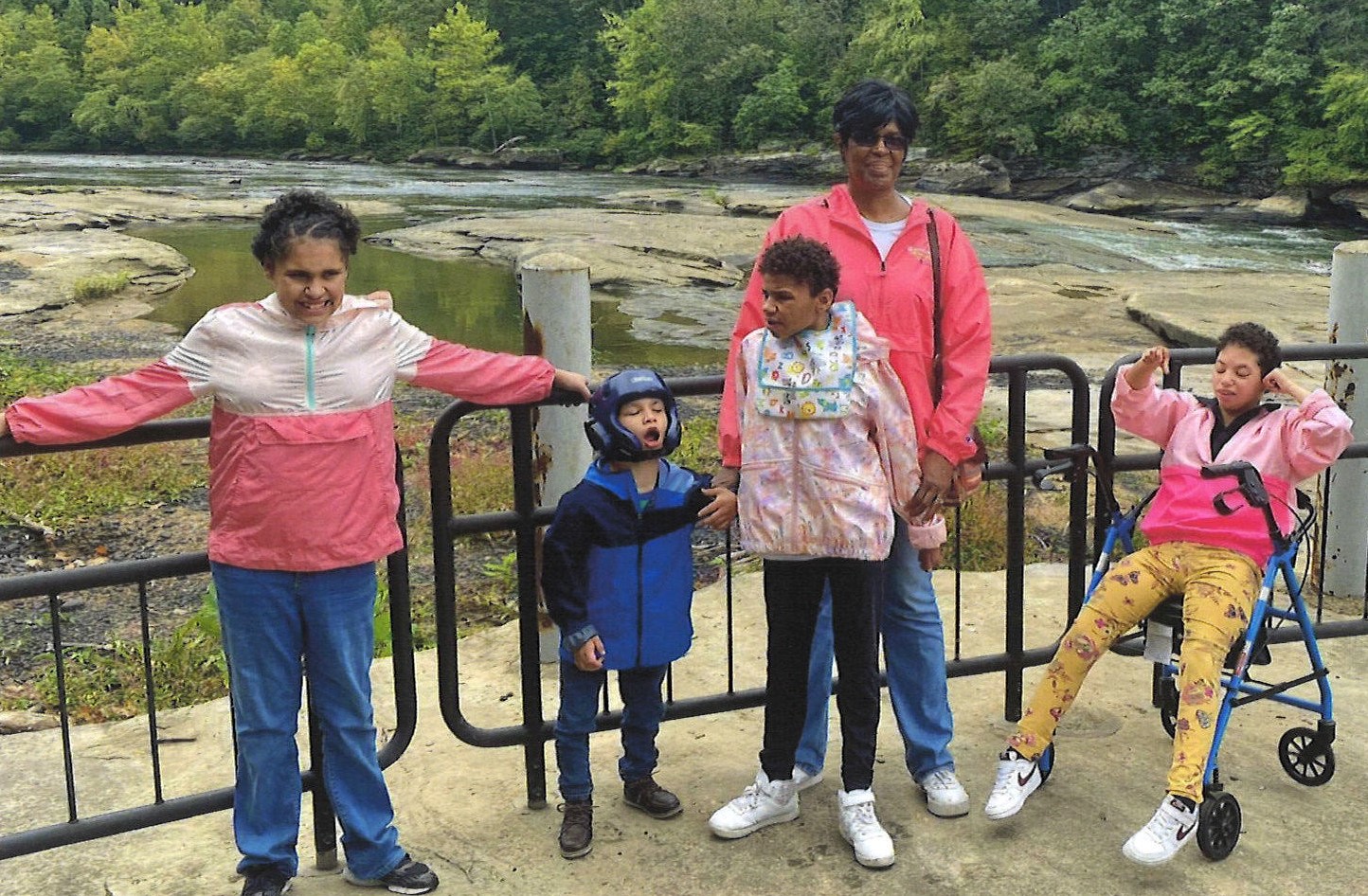Quinn Davis Vogel had always wanted a big family. And the more she eyed the recruiting sign – Do you have it in you to foster? – the more she felt it was speaking directly to her. Never mind that she already had three grown daughters and was about to retire from her nursing career.
Davis Vogel decided to become a foster parent. She also was willing to open her home to children with intensive needs and developmental disabilities. “When the lord’s been good to you, and your children are healthy, you pay it forward,” she said.
After child-welfare officials determined that three of the children would not return to their biological families, Davis Vogel took the next step: She adopted Brady, now 8; Daryn, 13; and Mariah, 17.
“Typical kids who wind up in foster care are more likely to return to their parents and relatives,” she said. “Sadly, a lot of times, people feel that once their special-needs kids are gone, it’s easier not to take them back.”
For Davis Vogel and her adult children, who are supportive and involved in the lives of their younger siblings, the journey has been rewarding and challenging, joyous and heart-wrenching. But always, Davis Vogel believes that she made the right choice:
It doesn’t sound like there’s a lot of relaxation in your retirement!
To see the world through the eyes of a child, it keeps you humble, keeps you young. We went out and built a snowman last week. I took lessons and finally learned how to swim. These children aren’t shut away in the house; we travel, eat at restaurants, garden, enjoy music and the outdoors. We want them up and out.
Have you seen a lot of change and growth?
All the kids are non-verbal, but they’ve made so much progress. Mariah is blind; when she came to us, she didn’t walk. She does now. Brady, too. He was a self-harmer. I rocked and rocked and rocked him. Daryn had a rough start in life but she’s doing really well.
Mariah attends FCBDD’s West Central School and Transition Services. How’s it going?
We love West Central. This is her second year, and when I first talked to staff, they said, ‘What do you want for her?’ I said, ‘I want her to be pushed as far as she’s comfortable going.’ For Family Night events, Rebecca (Holthaus, the principal) told me to bring the other kids, too. Which I really appreciate.
Traveling and going out with the children, you’ve probably seen the best and the worst of other people, right?
Oh, yes. I’ve had someone say, ‘Why would you put them in school? They can’t learn.’ Or, ‘Why would you take these kids places? It’s not worth it.’ Well, how would they know what these children know? Other times people are wonderful. There are those who come up to me and say, ‘It’s great that you’re here. These children have every right to be out in the world.’
You seem to find ways to connect with each child, no matter their disabilities.
God gives everyone gifts. I finally got my big family, and these children deserve a good life. Mariah can’t see the ocean, but when we took her, she loved listening. She can’t watch television, so one night a week it goes off, and we have a dance night. Mariah knows – she just knows –that it’s for her.



